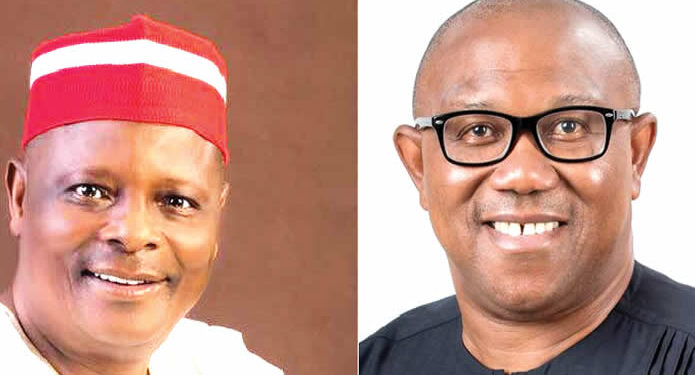The Labour Party (LP) has warmly received the offer from Senator Rabiu Kwankwaso, the New Nigeria People’s Party (NNPP) presidential candidate in the 2023 elections, to be Peter Obi’s running mate for the 2027 presidential race. Kwankwaso recently expressed his willingness to join forces with Obi, provided “certain conditions are met.”
Kwankwaso, who had a strong showing in the 2023 elections, highlighted his readiness to support Obi, despite past negotiations between the two political figures collapsing ahead of the 2023 polls. Speaking in a viral video, Kwankwaso claimed he was politically superior to Obi but expressed openness to meaningful dialogue, emphasizing the need for trust in any potential partnership.
In 2023, Obi secured third place with over 6 million votes, while Kwankwaso, a former Kano State governor, garnered nearly 1.5 million votes, placing fourth. Reflecting on his political career, Kwankwaso reiterated his willingness to work with Obi for the sake of national interest.
Labour Party’s National Secretary, Umar Farouk, described Kwankwaso’s renewed interest in joining Obi’s ticket as a positive development. Farouk also urged Kwankwaso to set aside comparisons about political seniority and educational background, stressing that collaboration between the two leaders would be vital in forming a formidable opposition to challenge the current government. He acknowledged that a joint ticket between Obi and Kwankwaso could significantly impact the political landscape in the 2027 elections.
Meanwhile, a legislative aide to the Deputy President of the Senate, Alhaji Ado Garba (Tati), expressed confidence that President Bola Tinubu would retain power in 2027. Tati cited the positive impact of Senator Barau Jibrin’s initiatives in Kano State and the increasing popularity of Tinubu’s reform policies as key reasons for Tinubu’s expected success. Despite opposition criticism, Tati predicted that Kano voters would back Tinubu and the APC in the upcoming elections, fueled by Senator Barau’s development programs and empowerment initiatives.
With political alliances beginning to take shape ahead of the 2027 presidential race, both the opposition and the ruling party are already strategizing to gain the upper hand in what is expected to be a fiercely contested election.
























